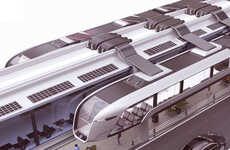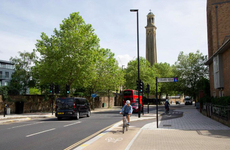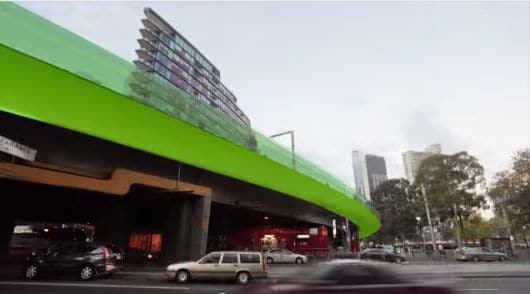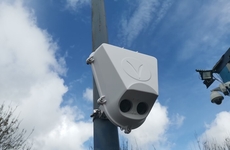
The Veloway is a Proposed Bicycle Freeway for the City of Melbourne
Rahul Kalvapalle — August 12, 2014 — Autos
References: victorian-cycling-network.org & gizmag
A consortium of engineering and architectural firms are pushing for the construction of the Veloway -- an elevated bicycle highway -- in the city of Melbourne, Australia. The bike highway would kill two birds with one stone by improving the safety of cyclists while also creating an efficient transportation link across the city.
The Veloway proposal, which has been in the works for a couple of years now, involves a 1.7 km route that would run from Southern Cross railway station in the city's west end to Flinders Street Station in the south. The two stations are already linked by a viaduct; the Veloway would be attached alongside it, allowing cyclists to be separated from cars, trans and foot traffic.
The Veloway project would cost around $23 million. The consortium is hoping to secure $480,000 from the Melbourne City Council and Victorian State Government to conduct a feasibility study.
The Veloway proposal, which has been in the works for a couple of years now, involves a 1.7 km route that would run from Southern Cross railway station in the city's west end to Flinders Street Station in the south. The two stations are already linked by a viaduct; the Veloway would be attached alongside it, allowing cyclists to be separated from cars, trans and foot traffic.
The Veloway project would cost around $23 million. The consortium is hoping to secure $480,000 from the Melbourne City Council and Victorian State Government to conduct a feasibility study.
Trend Themes
1. Elevated Bicycle Highways - The construction of elevated bicycle highways creates opportunities for safer and more efficient transportation for cyclists in urban areas.
2. Cycling Infrastructure - Investments in cycling infrastructure, such as the Veloway proposal, support the growing demand for alternative modes of transportation and promote sustainability.
3. Active Transportation - The development of elevated bicycle freeways encourages active transportation, leading to improved health and reduced traffic congestion in urban environments.
Industry Implications
1. Transportation - The transportation industry can explore new opportunities in the construction and maintenance of elevated bicycle highways, catering to the increasing demand for cycling infrastructure.
2. Urban Planning - Urban planning firms can capitalize on the trend of elevated bicycle freeways by incorporating these innovative solutions into their designs and creating more cyclist-friendly cities.
3. Architecture and Engineering - Architecture and engineering firms have the potential to revolutionize urban mobility by designing elevated bicycle highways that enhance safety, accessibility, and efficiency for cyclists.
4.3
Score
Popularity
Activity
Freshness






 play_circle_filled
play_circle_filled









